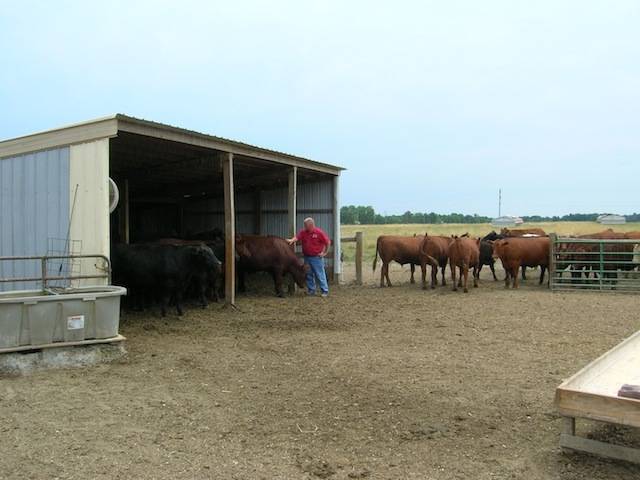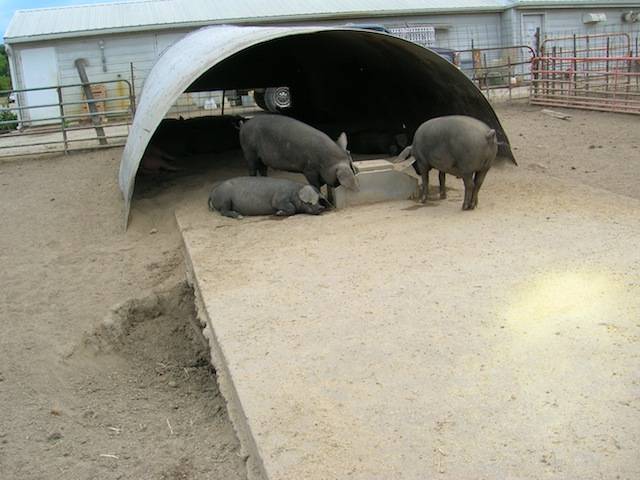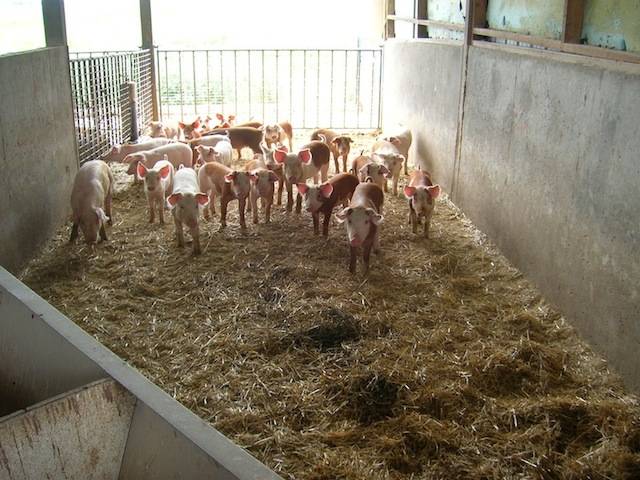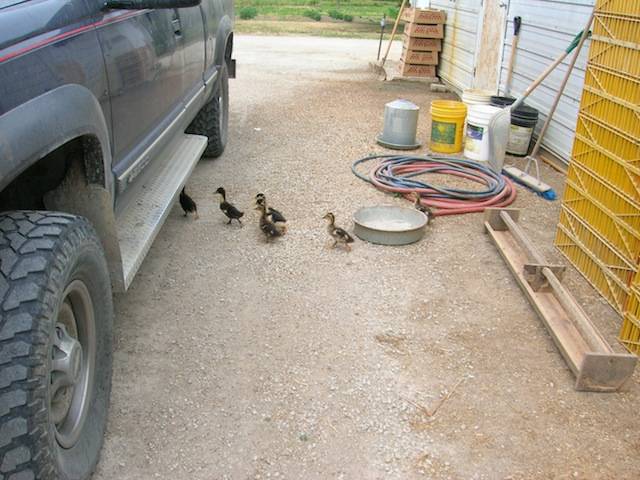Stan Scott Schutte, the man behind Triple S Farms, literally stakes his name on his product. He pulls 20 hour days, farming his 80 acres alongside his son and just three other trusted employees. He drives the 75 minute commute between Champaign and Stewardson to personally sell and deliver his meats. He’s been farming for a living since the 60s, through every imaginable condition. Ask any chef in town, and they’ll tell you Stan is the man. But after this year’s Food and Wine Classic, the whole culinary world knows the Triple S brand.

For those of you unfamiliar with the event, the Food and Wine Classic is basically the foodie Olympics, with the Cochon (pork) category being the main event. The Grand Cochon is held in Aspen every June, with competitors who won their regional competition by beating out Top Chefs like Stephanie Izzard. This year’s winner, Jason Vincent of Chicago’s Nightwood, went from underdog to champion with brunch inspired dishes like a bacon-butterscotch doughnut, scrambled eggs with “hollandoink” sauce, and a bloody mary served out of femur bone. His pork of choice? Triple S Farm.
“I got the best tasting pork in America,” Stan beamed when I visited him on a sunny, June Sunday. As our discussion moved from his Cochon victory to the bacon-infused pork burger he’s creating, his passion for his work was obvious and infectious. His astoundingly technical knowledge of every breed and cross the farm produces juxtaposes a preoccupation with livestock living conditions to create the exact type of person you want to farm animals. Also, he’s damn funny.

“Yeah, I’m old,” Stan said dryly when I expressed my veneration for his decades of experience. You could argue likeability has little to do with farming. However, there’s something satisfying about doing business with someone you can both look in the eye and enjoy a good laugh with. Just ask Josh Boyd. As head chef of Carmon’s Bistro, he uses Triple S because Stan “is simply the best.”
“You can tell the integrity and care he has in his work. ,,, I really just think that it is his attention to detail that really sets him apart from everybody else.” Josh told me anytime Carmon’s uses meat, “you can almost guarantee it is from (Stan).” For instance, current menu items like a beef burger served on a pretzel bun with goat cheese and seasonal produce, sausage for biscuits and gravy at brunch, and the delicious pan-fried chicken at the bistro’s first hugely popular pop-up dinner all use Triple S product. The chef also mentioned a “black pepper bacon that gives me cold sweats in my sleep.” His response to the Grand Cochon win? “Duh.”

But despite the victory, farming never stops. After returning from Aspen, Stan and his team went right back to the job. Like other farmers I’ve written about, Triple S’s quality comes from organic, drug- and hormone-free practices. And once again, a seemingly simple approach to farming translates to harder work and longer hours. Livestock presents a unique set of problems, from fending off coyotes hunting the free-range chickens to training animals to herd themselves in and out of pens made to protect them during non-grazing hours. The balance between animal freedom and guarding your living complicates Stan’s job. His high standards and straightforward blend of idealism and realism impressed me. Also, as someone who is very choosy about the location and origin of what’s on her plate, I worried about my reaction to seeing a farm where animals are raised for food. But after exploring Triple S, I dug into a grass-fed beef burger, guilt-free.
Beyond ethics, Stan’s knowledge of breeding and genetics deserve admiration. The farm raises primarily Red Angus cattle because they’re “more docile than Black Angus” and heritage breed poultry and pork known for their meat quality, like the Tamworth that won the Grand Cochon. A 17-month waiting game until the pork can reach the table necessitates a patient, trial and error approach to cross-breeding. The farmer takes it in stride, saying, “You learn every year.”

And then there’s weather. “Last year was probably the worst year we ever had … ’cause it was so wet.” After last season, this year’s heat wave and drought typecast Mother Nature as a malicious thug, waiting to bully farmers around. Just a few weeks ago, Triple S was seeing “some of the best looking crops we’ve ever had,” but the dry conditions have already forced Stan to dip into winter hay reserves. “If we don’t get rain, we’re screwed,” the farmer told me.
It seems both ironic and unfair that the farm’s huge success in the culinary world goes hand in hand with some of the worst growing seasons we’ve seen in years. Then again, perhaps that’s also what’s special about Stan Schutte: the ability to thrive under pressure. To win accolades and produce quality like Triple S Farms in ideal conditions is impressive. To do it despite the conditions is talent.
Check out Triple S Farms at the Urbana Farmer’s Market or visit their website.











